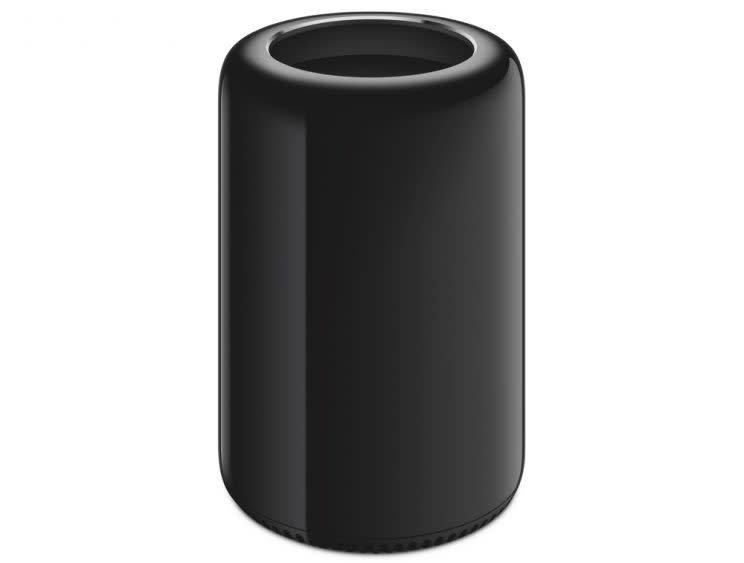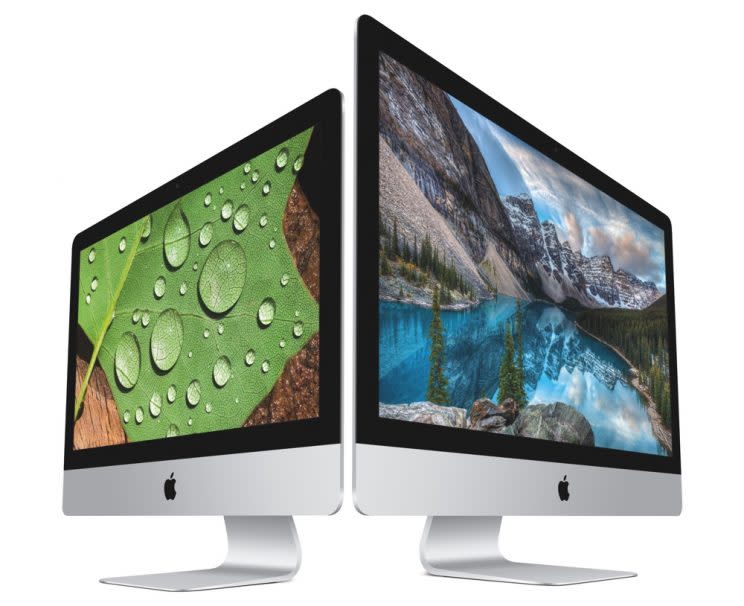How Apple's secrecy can hurt consumers

After letting its most powerful and expensive Mac go 1,202 days without an update, Apple (AAPL) picked Tuesday to enlighten potential Mac Pro buyers about the future of its flagship desktop computer.
The Mac Pro will not, in fact, stay frozen in its late-2013 incarnation. Sometime after this year, Apple will finally ship a completely rebuilt version of the desktop. What’s more, the company’s iMac, which has gone 539 days without a refresh, will also see an update later this year.
Apple even said it was sorry for leaving its customers wondering if the Mac Pro had a future. But this gesture at transparency doesn’t mean Apple will now be as public with its product road maps as, say, its environmental efforts. This company — like many others in the tech business — remains deeply devoted to parceling out information about its hardware on its own terms, as frustrating as that can be for its customers.
Hard-where?
As Daring Fireball blogger John Gruber, TechCrunch’s Matthew Panzarino, Mashable’s Lance Ulanoff, Axios’s Ina Fried, and BuzzFeed’s John Paczkowski separately wrote after attending a Monday briefing near Apple’s headquarters, a reborn Mac Pro will sacrifice the current model’s titanium-trash-can style in favor of a design that eases storage and processing upgrades.
As an interim step, Apple has bumped up the specifications on the existing model and offered an uncharacteristic apology to customers.
“If we’ve had a pause in upgrades and updates on that, we’re sorry for that,” Panzarino quoted Apple marketing vice president Phil Schiller.
The iMac, meanwhile, will get a less comprehensive update than the Mac Pro later this year. The five writers had fewer details to share about that desktop, aside from the hint that Apple will offer models geared toward professional users.

Apple’s all-in-one iMac is also getting a refresh. Schiller also revealed that desktops still make up 20% of Apple’s computer sales — a data point Apple last seems to have shared in 2012, when desktops held a 25% share.
There’s still no word on Apple’s two other neglected computer lines — the MacBook Air, which has now gone 758 days without an update, and Mac mini, now neglected for 902 days.
Opacity and openness
It’s crazy for Apple to offer even a vague outline of a future product given its history of secrecy regarding devices. When I asked Apple PR if the company had anything to say about the MacBook Air and Mac mini, a representative declined to comment on unannounced products.
But while this tight control of information helps Apple crank up excitement before each product launch and hasn’t hurt its stock price (from the Dec. 19, 2013 release of the Mac Pro to today, it’s nearly doubled in value), this opacity can hurt customers’ confidence in the company.
Apple can’t blame that on Mac users getting too clingy.
Yes, the slowing pace of evolution in “real” computers has shrunk the performance gap between new and older hardware. And yes, Apple likes to hold product revisions until it can deliver major changes — as Creative Strategies president Tim Bajarin explained in an email, the company focuses on “having the right chips and design,” not just popping in the latest processor from Intel (INTC).
Competing computer vendors, however, update their PCs much more consistently, and Apple ships new iPhones and iPads with an almost-monotonous regularity. It’s easy to feel that Apple has decided its future is iOS, not macOS — as Adam Engst, editor of the long-running Mac-news site TidBits, fretted in November.
Tuesday’s unprecedented pre-announcement “shows how much pressure they must feel they are under to fix the professional problem,” NPD Group analyst Stephen Baker said in an e-mail.
He added that while the cost for a pro user to move from Mac to Windows is high, “people have been absorbing it because of their lack of confidence in Apple’s future for the Mac.”
This isn’t just an Apple problem
Apple is known for keeping its customers and developers in the dark (see also, its inscrutable oversight of its App Store), but so do a lot of other tech companies.
Google (GOOG, GOOGL), for instance, has a long and dubious history of shutting down projects and services without warning — which doesn’t stop it from introducing new apps that we’re supposed to expect won’t meet the same fate.

Remember when it launched the Google Keep note-taking app a week after revealing that it would shut down Google Reader, the company’s free and simple tool that updated you about new posts on websites you followed?
That’s one of the reasons why I still take my notes in Evernote but pay to use that app’s premium version. Except Evernote has its own, more recent history of axing products without warning.
Facebook (FB) has run the same never-mind playbook when it shut down its Messages e-mail replacement and its Credits currency scheme, both unceremoniously dumped after the social network’s users and developers largely ignored those features.
It’s enough to make us feel like passengers on an airplane whose pilots and cabin crew never make any announcements. We know we’ll get to our destination, but when and with what kind of inflight services remains a mystery.
All you can do is try to score an exit-row seat — by which I mean, ensure that you can get your data out of whatever gadgets and apps hold it right now.
More from Rob:
Email Rob at [email protected]; follow him on Twitter at @robpegoraro.
